Iraq invasion 2003: The bloody warnings six wise men gave to Tony Blair as he prepared to launch poorly planned campaign

Exclusive: In November 2002, a group of academics were summoned to advise the then PM. Here, four of them recall that day
COLE MORETON
http://www.independent.co.uk/news/uk/politics/iraq-invasion-2003-the-bloody-warnings-six-wise-men-gave-to-tony-blair-as-he-prepared-to-launch-poorly-planned-campaign-10000839.html
Sunday 25 January 2015
Tony Blair had a cough. He looked sick, pale and exhausted. “Don’t tell me it is going to be bad,” he said to the six men he had summoned to see him in Downing Street as war loomed. “Tell me how bad it will be.”
Those “six wise men” were all academics, expert in Iraq, the Middle East and international affairs. They had been called to the Cabinet Room to outline the worst that could happen if Britain and the United States launched an invasion.
This was a meeting that could have changed the course of history and, with better planning for the aftermath, saved countless lives – if only the Prime Minister and his advisers had listened and acted on the bloody warnings on that day in November 2002.
As we continue to wait for Lord Chilcot’s long-delayed report into Britain’s part in the war, four of those six men have agreed to talk to The Independent on Sunday about how and why things turned out even worse than they predicted. If anybody knows, they do.
The six wise men1 of 6

Next






“They were expecting a short, sharp, easy campaign and that the Iraqis would be grateful,” says Dr Toby Dodge, then of Queen Mary University of London, and the first to speak that morning.
He warned of a possible disaster: that Iraqis would fight for their country against the invaders rather than just celebrate the fall of their leader. A long and nasty civil war could follow. “My aim that day was to tell them as much as I could, so that there would be no excuses and nobody saying, ‘I didn’t know.’”
Blair has been defending himself in advance against the kicking he is expected to get from Lord Chilcot and the panel helping his investigation. There has been outrage at the news that the report will not be published until after the election, but Dr Dodge believes this is partly because members of the panel want to get their draft of history absolutely right – and that they will not pull punches.
“They fought like cats and dogs to get the transcripts of the conversations between Blair and George W Bush,” says the political scientist, who gave evidence to the inquiry’s first gathering back in 2009.
“This is not going to be written in high mandarin. It will be clear and direct. It is going to be damning.”
Professor George Joffe of Cambridge University, who also spoke that morning, and to the panel in 2009, agrees. “I think it is bound to be damning. The errors of judgement were so blatant, there is no way they can whitewash this.”
The six men were assembled around the Cabinet table in 2002 by Sir Lawrence Freedman, professor of war studies at King’s College London and an adviser to Blair. “I simply felt it was important that such decisions should be taken with eyes open about the possible longer-term implications,” he told The Independent on Sunday in 2004. He is now on the Chilcot panel.
Dr Dodge believes the report will criticise Blair’s so-called sofa government, which was “highly informal and backed up with no institutional depth whatsoever. There was no extensive research in terms of risk assessment.”
He expects the panel to attack the chiefs of staff, civil servants and other advisers at the time. “They will damn the diplomats and the top military brass for not doing their job, which was to say, ‘No, minister.’ If Blair was the poodle of Bush then people like Jeremy Heywood [his principal private secretary] served a very poor policy very poorly.”
Others have criticised the Chilcot panel for not pushing witnesses hard enough, but Dr Dodge disagrees. “My reading of the questions was that they were giving them enough rope to hang themselves.”

Families escape from Basra in March 2003 (EPA)
So what did happen? And could lives had been saved if the Prime Minister’s response to that meeting on the morning of Tuesday 19 November 2002 had been different?
“We were heavily briefed,” says Dr Dodge, who is now at the London School of Economics. “They said, ‘Don’t tell him not to do it. He has already made up his mind.’”
So there was no chance of stopping the invasion, or the UK joining it, but what was at stake that morning was the aftermath. What would happen on the day after victory was declared?
“They had no plan for what would happen after the invasion,” says George Joffe. “The approach was, ‘The Americans are heading this up. They will have a detailed plan. We need to follow them.’”
Unfortunately, he says, that was not true. “The State Department had spent a year preparing a detailed briefing about how the after-invasion scenario should be handled. All that was junked. They were making up policy on the hoof.”
The six wise men brought their expertise to Downing Street the day after UN inspectors had arrived in Iraq to look for weapons of mass destruction. Jack Straw, the Foreign Secretary, was also at No 10, explaining details to the Prime Minister and pointing out places on a number of maps. In other news, the tanker Prestige was spilling 76,000 tons of crude oil into the Atlantic off the Spanish coast.
The meeting began with five-minute presentations by Dr Dodge, Professor Joffe and Professor Charles Tripp of the School for Oriental and Asian Studies, an expert in the Middle East. Professor Joffe emphasised the rigid power structures in Iraq that defined Saddam Hussein as much as he defined them, but became frustrated when the Prime Minister responded by personalising the problem again, saying: “But the man is evil, isn’t he?”
Another expert present was Steven Simon, then deputy director of the International Institute for Strategic Studies. He was also a US diplomat who had been seconded from the State Department; it is unclear whether Blair was aware of this.
Mr Simon now believes that even with greater forward planning the invasion would have had the same catastrophic results, as it was absurd for the White House to think it could bring democracy to Iraq with a war. “If everything had been done differently, there might have been some small shot at avoiding disaster. But only a small shot.”
Professor Joffe disagrees, and believes there could have been a more positive and peaceful outcome if Blair had taken on board what was said that day and used his influence with George W Bush to push for a detailed post-invasion plan that kept stability in the country. “The people who were put in charge in Iraq had very little knowledge or experience of the Middle East,” he says. “There was nobody in leadership with any practical experience of how to handle a transition to democracy like that. They were quite childish in somehow believing that democracy would bloom. This showed ignorance, not only of the region but also of the way politics works.”
The Pentagon and the White House took the decision to remove those at the top of the Iraqi army and the ruling Ba’ath Party, he says, but Paul Bremer took it much further in his role as Governor of Iraq and demolished both entirely. This opened Pandora’s box, says Professor Joffe, by removing the lid that had been in place under Saddam. “Islamic State is a direct consequence of the decision to invade.”
The civil war and violent chaos that followed the war created the right conditions for Islamic State to grow, says Professor Joffe. The movement picked up strength on the ground by forming alliances with the former Ba’ath party leaders who served under Saddam and who still had extensive networks, he says. “Given their sense of alienation from the Shia-led government, their organisation and the reputation of the Ba’ath Party for bringing order in the past, whatever their methods, you can see why Sunni tribes have said, ‘These are the guys we have got to support.’”
The sixth wise man was Professor Michael Clarke, then at King’s College London and now the director general of the Royal United Services Institute. He was neither a hawk nor a dove that day, but “agnostic” about what might happen after an invasion. “Blair knew this was going to be serious,” he says. “He was not blasé about it at all.”

So what did happen? And could lives had been saved if the Prime Minister’s response to that meeting on the morning of Tuesday 19 November 2002 had been different?
“We were heavily briefed,” says Dr Dodge, who is now at the London School of Economics. “They said, ‘Don’t tell him not to do it. He has already made up his mind.’”
So there was no chance of stopping the invasion, or the UK joining it, but what was at stake that morning was the aftermath. What would happen on the day after victory was declared?
“They had no plan for what would happen after the invasion,” says George Joffe. “The approach was, ‘The Americans are heading this up. They will have a detailed plan. We need to follow them.’”
Unfortunately, he says, that was not true. “The State Department had spent a year preparing a detailed briefing about how the after-invasion scenario should be handled. All that was junked. They were making up policy on the hoof.”
The six wise men brought their expertise to Downing Street the day after UN inspectors had arrived in Iraq to look for weapons of mass destruction. Jack Straw, the Foreign Secretary, was also at No 10, explaining details to the Prime Minister and pointing out places on a number of maps. In other news, the tanker Prestige was spilling 76,000 tons of crude oil into the Atlantic off the Spanish coast.
The meeting began with five-minute presentations by Dr Dodge, Professor Joffe and Professor Charles Tripp of the School for Oriental and Asian Studies, an expert in the Middle East. Professor Joffe emphasised the rigid power structures in Iraq that defined Saddam Hussein as much as he defined them, but became frustrated when the Prime Minister responded by personalising the problem again, saying: “But the man is evil, isn’t he?”
Another expert present was Steven Simon, then deputy director of the International Institute for Strategic Studies. He was also a US diplomat who had been seconded from the State Department; it is unclear whether Blair was aware of this.
Mr Simon now believes that even with greater forward planning the invasion would have had the same catastrophic results, as it was absurd for the White House to think it could bring democracy to Iraq with a war. “If everything had been done differently, there might have been some small shot at avoiding disaster. But only a small shot.”
Professor Joffe disagrees, and believes there could have been a more positive and peaceful outcome if Blair had taken on board what was said that day and used his influence with George W Bush to push for a detailed post-invasion plan that kept stability in the country. “The people who were put in charge in Iraq had very little knowledge or experience of the Middle East,” he says. “There was nobody in leadership with any practical experience of how to handle a transition to democracy like that. They were quite childish in somehow believing that democracy would bloom. This showed ignorance, not only of the region but also of the way politics works.”
The Pentagon and the White House took the decision to remove those at the top of the Iraqi army and the ruling Ba’ath Party, he says, but Paul Bremer took it much further in his role as Governor of Iraq and demolished both entirely. This opened Pandora’s box, says Professor Joffe, by removing the lid that had been in place under Saddam. “Islamic State is a direct consequence of the decision to invade.”
The civil war and violent chaos that followed the war created the right conditions for Islamic State to grow, says Professor Joffe. The movement picked up strength on the ground by forming alliances with the former Ba’ath party leaders who served under Saddam and who still had extensive networks, he says. “Given their sense of alienation from the Shia-led government, their organisation and the reputation of the Ba’ath Party for bringing order in the past, whatever their methods, you can see why Sunni tribes have said, ‘These are the guys we have got to support.’”
The sixth wise man was Professor Michael Clarke, then at King’s College London and now the director general of the Royal United Services Institute. He was neither a hawk nor a dove that day, but “agnostic” about what might happen after an invasion. “Blair knew this was going to be serious,” he says. “He was not blasé about it at all.”

Sir John Chilcot, centre, and his panel (Getty)
The Prime Minister arrived that day looking ill, he says. “He looked like a man who should not have been working full time, a man who was just getting over a virus that had left him worn out.”
Did he look like a man who should not have been making big decisions? “There is no let-up in leadership. The poor guy had to carry on.”
Professor Clarke does believe that the way Tony Blair was already attempting to justify the invasion to the public was a mistake. “We knew there was no nuclear stuff in Iraq,” he says. “We genuinely believed there were battlefield chemical weapons in the country.” Could they be described as weapons of mass destruction? “Yes, because of the indiscriminate effect they could have on the civilian population.”
The irony was that Saddam himself thought he had chemical WMDs, says Professor Clarke, because his own generals had not dared admit to him that they had not built as many as he thought. “Everyone believed the weapons existed but they didn’t because they had deteriorated and Iraq had not built as many as we thought.” Those that were in existence had deteriorated. Each general thought the others had the weapons, but they too were bluffing: “Nobody would tell Saddam the truth.”
What about the public claim that Iraq could launch a chemical strike against British troops in Cyprus within 45 minutes? “That was always absurd,” says Professor Clarke. “Tony Blair fell into the trap of bringing intelligence material into the public debate, which is a very foolish thing to do. Even the best intelligence is always messy.”
He believes Blair did not actually decide to go to war on the basis of intelligence, but made it look as if he had with his two “dodgy” dossiers. “He presented the case to the public as if they had incontrovertible evidence that Saddam had weapons of mass destruction. That was rubbish. They were ridiculous documents, both those documents.”
He does not believe Chilcot’s findings will come as a shock. “We all know the basic picture. The Americans committed a strategic blunder. Tony Blair never gave any real thought to not supporting them.”
Like Steven Simon, Professor Clarke believes that it barely occurred to the Prime Minister not to support the invasion, as his first concern had to be about the long-standing relationship between Britain andthe US. “He has been knocked about, but I think history will judge him more kindly than his contemporaries.”
Back in that meeting in 2002, it was Michael Clarke who showed sympathy for the ailing Tony Blair. He was the last to leave the room, and as he did so he placed a hand on the leader’s shoulder, saying, “Good luck, Prime Minister.” What was the reaction? “He gave me a knowing smile and said, ‘Yeah. Thank you.’”
He could probably do with such sympathy now.
The Prime Minister arrived that day looking ill, he says. “He looked like a man who should not have been working full time, a man who was just getting over a virus that had left him worn out.”
Did he look like a man who should not have been making big decisions? “There is no let-up in leadership. The poor guy had to carry on.”
Professor Clarke does believe that the way Tony Blair was already attempting to justify the invasion to the public was a mistake. “We knew there was no nuclear stuff in Iraq,” he says. “We genuinely believed there were battlefield chemical weapons in the country.” Could they be described as weapons of mass destruction? “Yes, because of the indiscriminate effect they could have on the civilian population.”
The irony was that Saddam himself thought he had chemical WMDs, says Professor Clarke, because his own generals had not dared admit to him that they had not built as many as he thought. “Everyone believed the weapons existed but they didn’t because they had deteriorated and Iraq had not built as many as we thought.” Those that were in existence had deteriorated. Each general thought the others had the weapons, but they too were bluffing: “Nobody would tell Saddam the truth.”
What about the public claim that Iraq could launch a chemical strike against British troops in Cyprus within 45 minutes? “That was always absurd,” says Professor Clarke. “Tony Blair fell into the trap of bringing intelligence material into the public debate, which is a very foolish thing to do. Even the best intelligence is always messy.”
He believes Blair did not actually decide to go to war on the basis of intelligence, but made it look as if he had with his two “dodgy” dossiers. “He presented the case to the public as if they had incontrovertible evidence that Saddam had weapons of mass destruction. That was rubbish. They were ridiculous documents, both those documents.”
He does not believe Chilcot’s findings will come as a shock. “We all know the basic picture. The Americans committed a strategic blunder. Tony Blair never gave any real thought to not supporting them.”
Like Steven Simon, Professor Clarke believes that it barely occurred to the Prime Minister not to support the invasion, as his first concern had to be about the long-standing relationship between Britain andthe US. “He has been knocked about, but I think history will judge him more kindly than his contemporaries.”
Back in that meeting in 2002, it was Michael Clarke who showed sympathy for the ailing Tony Blair. He was the last to leave the room, and as he did so he placed a hand on the leader’s shoulder, saying, “Good luck, Prime Minister.” What was the reaction? “He gave me a knowing smile and said, ‘Yeah. Thank you.’”
He could probably do with such sympathy now.
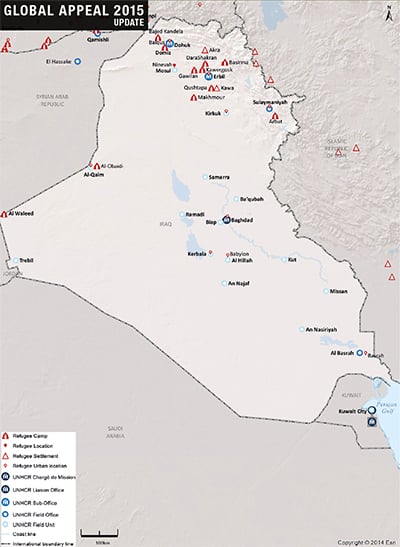
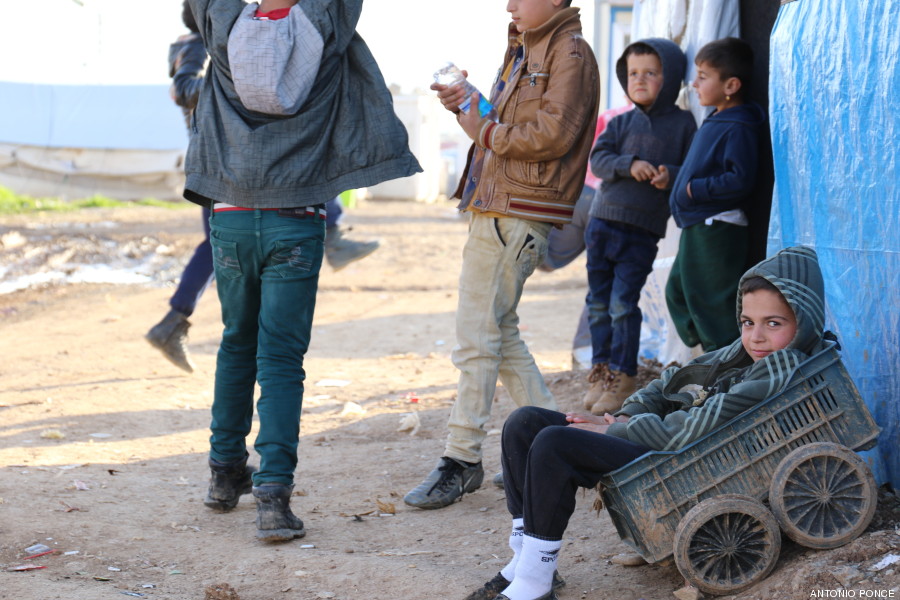
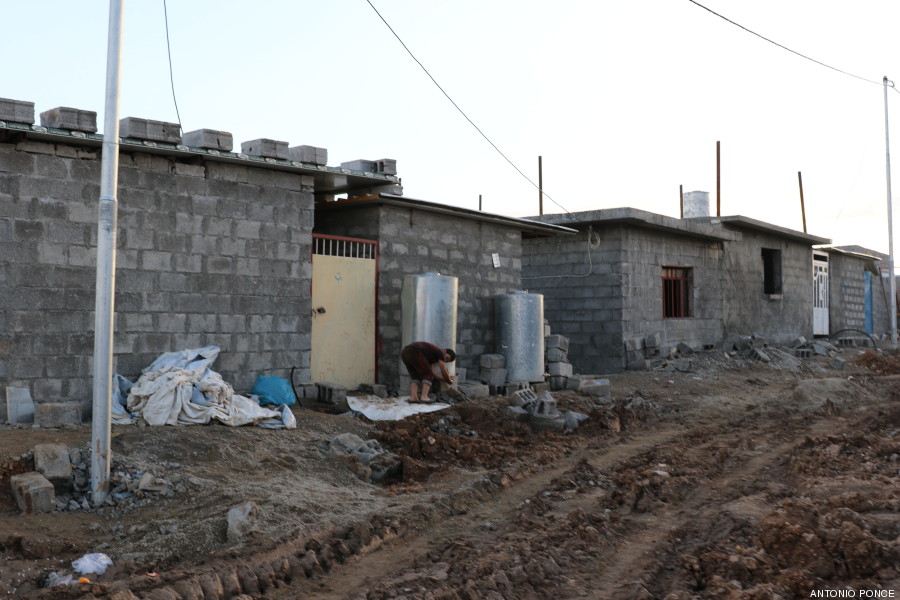 A refugee washing his hands in the middle of the muddied streets of the Barika Refugee Camp. The houses were paid for by the refugees out of their own pockets. The government only funded a small part.
A refugee washing his hands in the middle of the muddied streets of the Barika Refugee Camp. The houses were paid for by the refugees out of their own pockets. The government only funded a small part.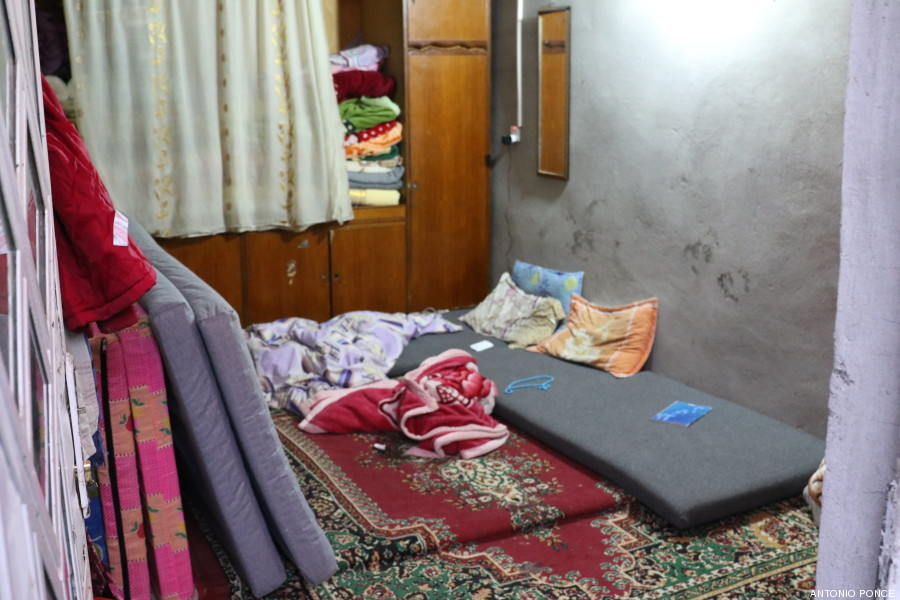
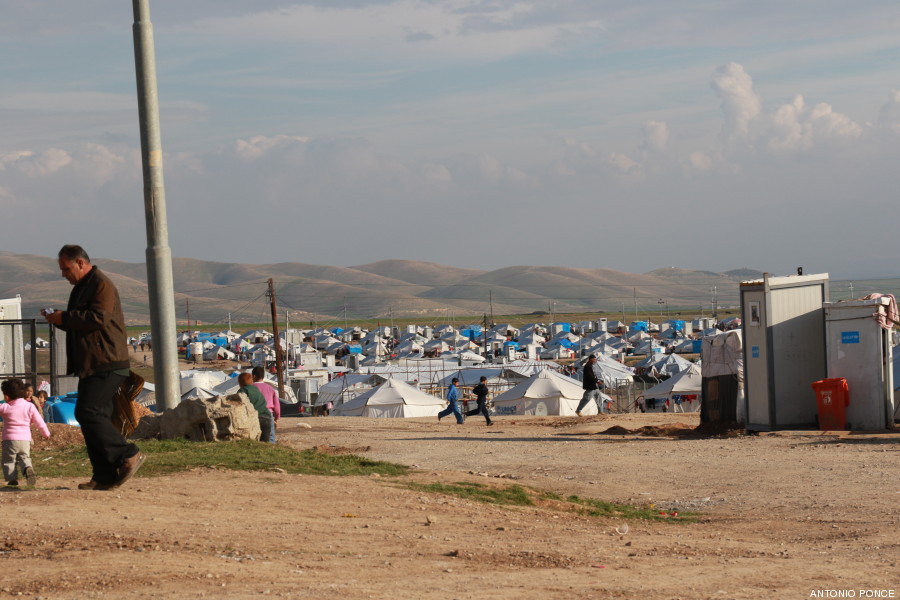
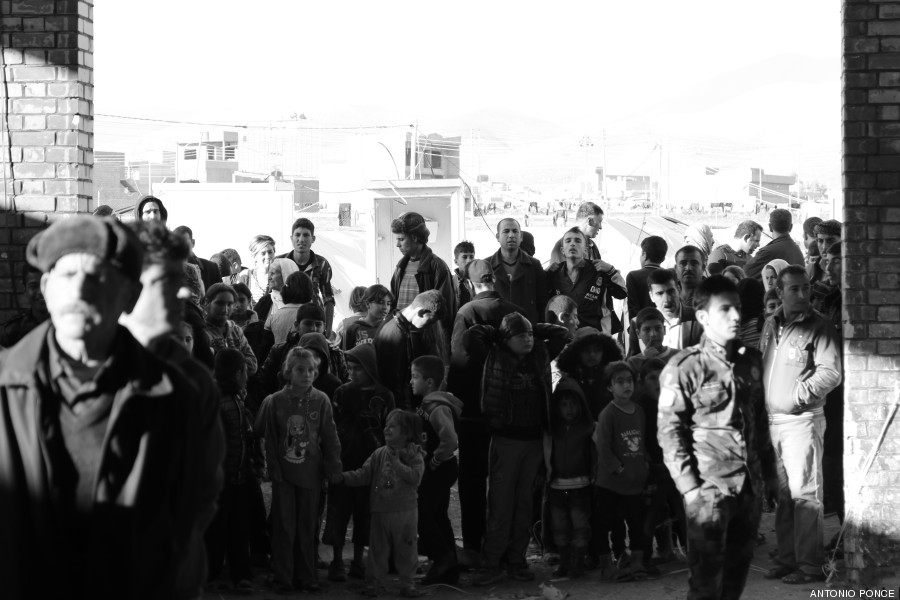
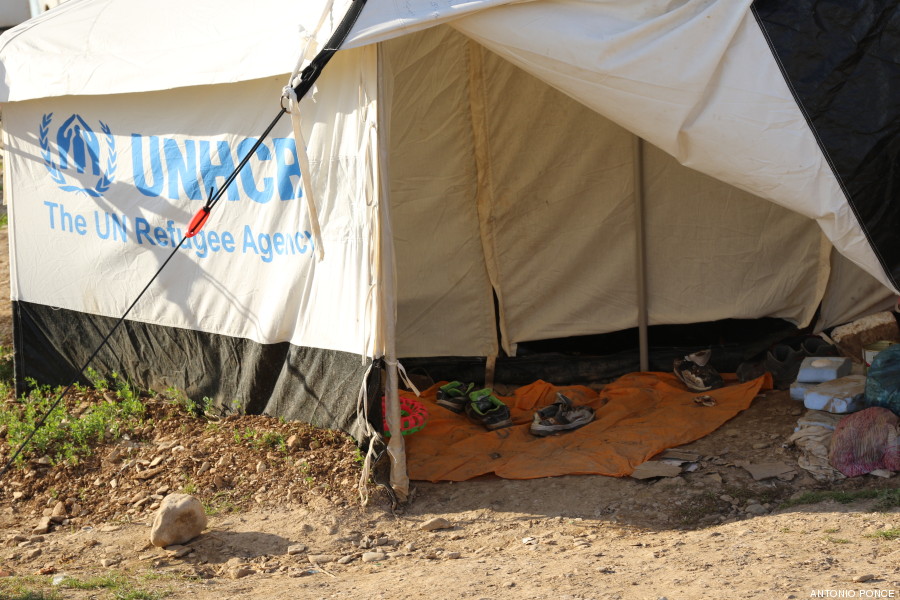





 The priority for the time being is defeating Daish but Kurdish independence is a medium-term possibility.
The priority for the time being is defeating Daish but Kurdish independence is a medium-term possibility. 














